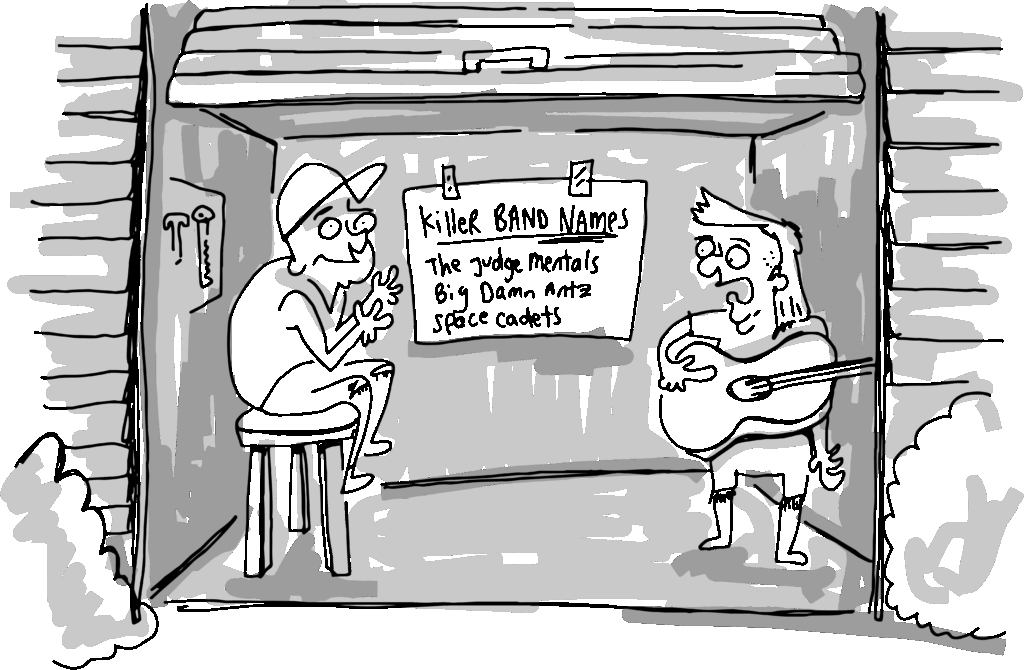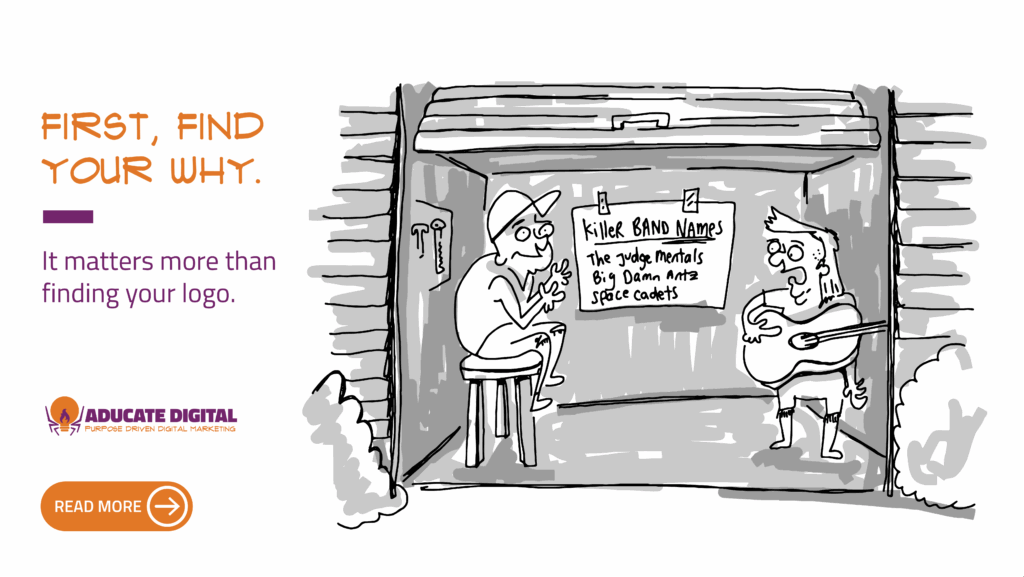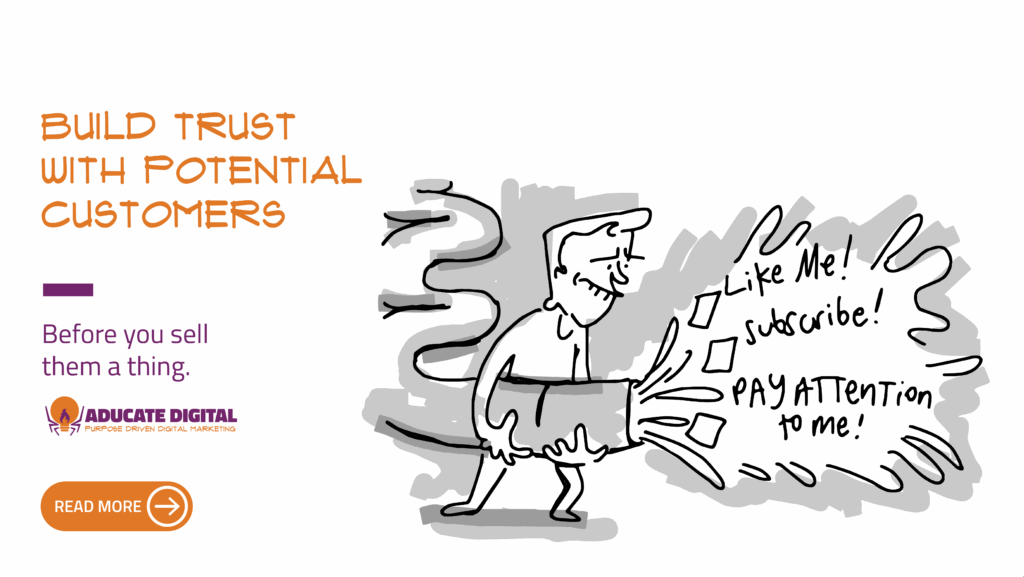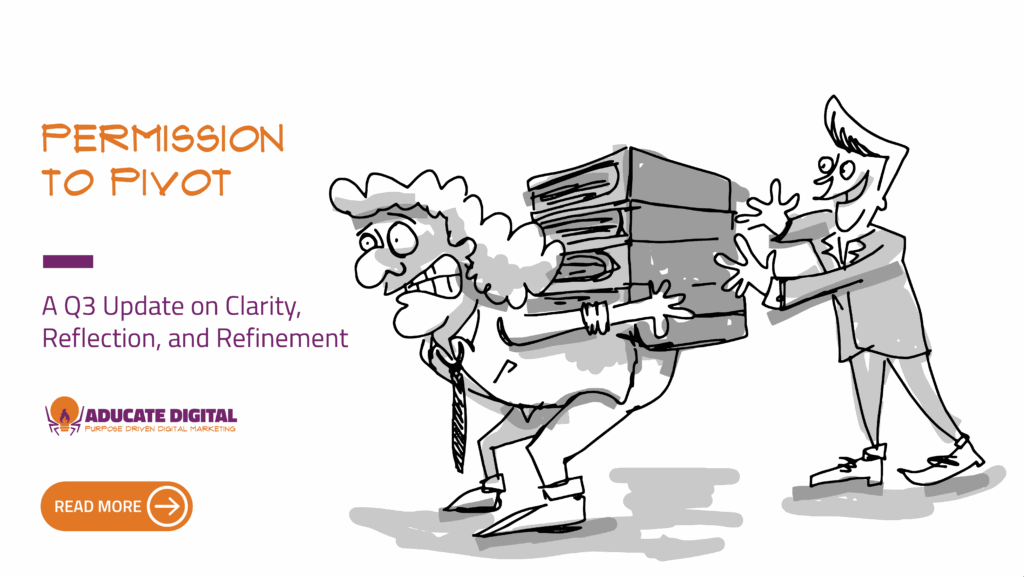
Quick Links
Finding Your Why
Are you feeling a restless energy? Is it coming from doomscrolling or watching friends post about side hustles? Are people’s stories about “breaking free” from their 9-to-5 giving you an itch to start something new?
The promise of freedom and controlling your destiny does sound empowering. And this spark leads many people down the path of starting their own business.
But before you take that first step, I urge you to pause. Not because I think entrepreneurship is a bad idea. But because how you enter this journey matters far more than where you end up. This post is about finding your why. And why that matters more than a name, a logo, or even the business idea itself.
To explore this, I want to compare entrepreneurship to something seemingly unrelated: the process of making art.
The Honeymoon and the Slog
Stage 1: When Everything Feels New (and Easy)
If you’ve ever started an art project (painting, pottery, even doodling) you know the beginning is intoxicating. The blank canvas is full of possibility, and your imagination runs wild. Skills improve fast in those first few sessions, and every stroke feels like progress. That’s the honeymoon stage. And it’s not all that different from starting a business.
- Picking a name.
- Designing a logo.
- Brainstorming your offers.
- Visualizing your dream life.
It feels fun. It feels like freedom. But then something shifts.
Stage 2: When the Work Shows Up
Any artist will tell you that at some point the excitement fades. Once you’ve mastered the basics, the progress slows. The mistakes you were willing to overlook in the beginning as “learning lessons” feel more obvious and annoying. What once felt like play starts to feel like…work.
Business is the same. The reality starts to set in when sales don’t happen as fast as you hoped and the day-to-day starts to feel overwhelming. The idea that started as pure joy starts to feel heavy. This is the slog stage. And most people don’t talk about it because it’s not Instagram-sexy.
Coaching programs and social media success stories rarely show this stage. They keep you in the exciting part: the vision, the possibility, the dream. And when you hit the slog, you think something’s wrong with you. Maybe I’m not cut out for this. Maybe I failed.
The truth is that the slog IS the work. It’s the part that defines whether you’re truly aligned with this path or just chasing an idea of success.
Why This Matters for Your Why
Take myself as an artist, what gets me through the slog is:
- Love for the craft itself. Not just the finished product.
- The sense of meaning behind what I’m creating.
- A vision I believe in enough to endure repetition, mistakes, and boredom.
Entrepreneurship is no different. If your “why” is surface-level (I hate my boss, I want more money, I just need freedom) it won’t sustain you when things get hard. Because they will get hard. Your why has to be strong enough to carry you through the slog stage. Through uncertainty, through long stretches of unglamorous work, through seasons when progress feels invisible.
So before you ask, “Should I start a business?” ask:
- What do I want my life to feel like in five years?
- When I imagine success, what’s actually in that picture: freedom, stability, creativity, connection?
- Do I crave autonomy or validation?
- Am I willing to experience discomfort and uncertainty? Not just once, but over and over to make this work?
Reflection Prompt #1
Close your eyes for a moment and imagine it’s five years from now. A day in your ideal life. What time do you wake up? What’s the first thing you do? Who are you with? What does your work look like and how do you feel about it?
Now, write it down in detail.
Look at what you wrote. Does entrepreneurship actually serve that picture?
Here’s something uncomfortable: many people start businesses not out of inspiration, but desperation. They’re running from something and chasing an escape rather than building with intention. They’re running from a job they hate, a sense of boredom, or the weight of comparison. There’s nothing wrong with wanting more for yourself. But running away is not the same as walking toward.
Your Radical Honesty Homework is to ask yourself: Am I trying to escape a feeling or am I trying to create a life I’ve deeply thought through?
Reflection Prompt #2
Think back to a time when you didn’t have all the answers. How did you respond? Did you freeze? Rush into action? Seek constant reassurance?
Now, imagine living in that space for months, maybe years. Could you find peace there? What is your relationship like with the unknown? How does it feel to you to live in that space? Can you tolerate the unknown long enough to discover something real?
If the answer feels like a hard no, that’s important information.
Every creative process is an experiment. You make something. You mess up and learn from it and adjust the next go around. Entrepreneurship works the same way. Your first idea may not be your best and plans will fail. And that’s okay because failure is feedback. One of my favorite acronyms for this is FAIL: First Attempt In Learning.
If your gut reaction to uncertainty is to panic or to make impulsive decisions just to feel in control, you may struggle in the early stages of entrepreneurship. That doesn’t mean you can’t succeed, but it does mean you need strategies to ground yourself.
Reflection Prompt #3
Think about a project or task you want to accomplish. Be intentional by writing down your next three steps and make them small, tangible, and time-bound. Something you can actually do this month.
Example:
- Talk to one person who’s doing the kind of work I’m interested in.
- Read one book about the reality of entrepreneurship.
- Experiment with one small idea and track what I learn.
Many aspiring entrepreneurs believe they need the perfect plan before they start. But the reality is your plan will change over and over again. Instead of building a rigid blueprint, think of planning as a grounding tool. Something that gives you enough clarity to take the next step rather than a cage that locks you in.
In art, we call this sketching. You don’t carve the final sculpture on day one. You make rough shapes, burn through erasers, crumble up paper, adjust and try again. In business, that’s call planning.
Start with one simple question: What am I walking toward? Write it down. Keep it where you can see it. Walking toward something feels different than running away.
Your Why Is Your Compass
At the end of the day, your why is what keeps you anchored not the hype. It’s not the hustle culture promises or the curated Instagram-worthy lifestyles.
So, before you start a business or quit your job, ask yourself:
- Do I know my why?
- Do I believe in it enough to endure the slog?
- Does it align with the life I truly want or just the life I’ve been told to want?
And if you’re not sure yet, that’s okay. You don’t have to leap today. You can start small and sketch first. Finding your why is about clarity rather than speed. And clarity is what will carry you through the messy middle, long after the excitement fades.
Artists know something many entrepreneurs forget: progress is cyclical. There are bursts of inspiration and long stretches of quiet work. There are breakthroughs and plateaus.
If you can learn to love the process more than the product, you’ll find entrepreneurship a lot less fragile. If you can see failure as data rather than a disaster, you’ll last longer than most. Your capacity to keep showing up when the work feels like work is what will determine your success.
Ready to explore your why with intention, not illusion?
Aducate Digital was built for moments like this. Not to sell you a dream, but to give you space, structure, and tools to figure out if entrepreneurship is truly your path. Reach out to us for a radically honest conversation.
Continue Learning About Business Growth
- Finding Your Why Matters More Than Finding Your LogoQuick Links Finding Your Why Are you feeling a restless energy? Is it coming from doomscrolling or watching friends post about side hustles? Are people’s stories about “breaking free” from their 9-to-5 giving you an itch to start something new? The promise of freedom and controlling your destiny does sound empowering. And this spark leads… Read more: Finding Your Why Matters More Than Finding Your Logo
- Build Trust with Potential Customers Before You Sell Them a ThingYour prospects aren’t ignoring you because you’re unclear. They’re overwhelmed. Learn how to build trust with potential customers by mapping their emotional decision-making journey and adjusting how you show up at each step.
- Permission to Pivot: A Q3 Update on Clarity, Reflection, and RefinementThis Q3 MarkED4 update shares the lessons learned from refining the program, embracing pivots, and why giving yourself permission to adjust is essential — not a mistake.



